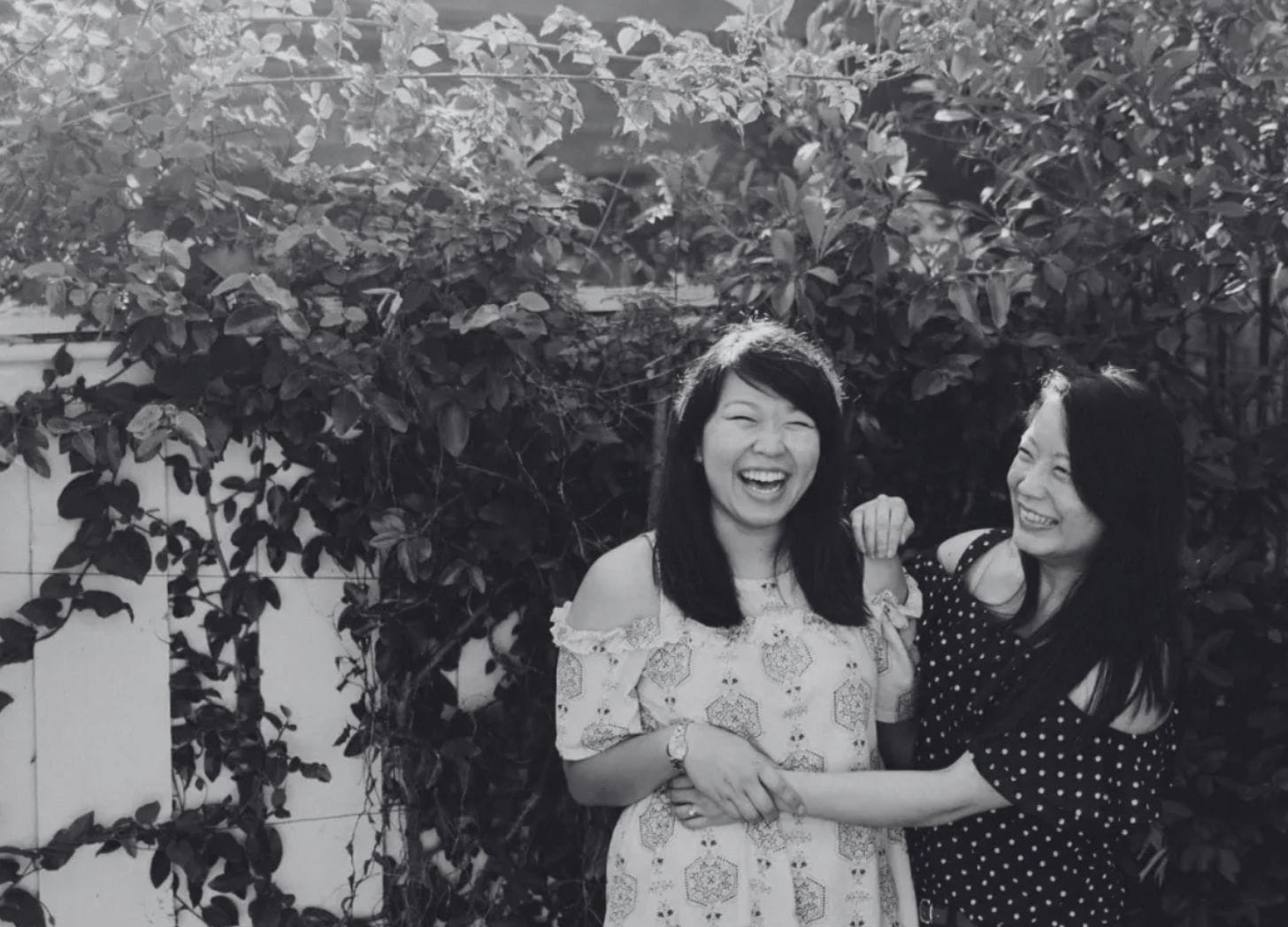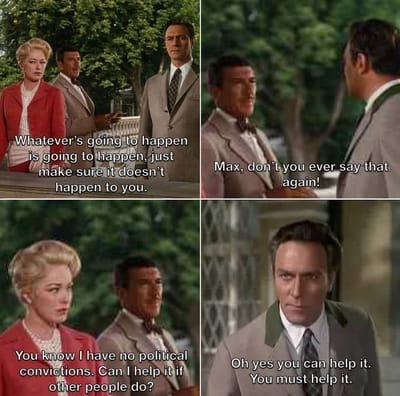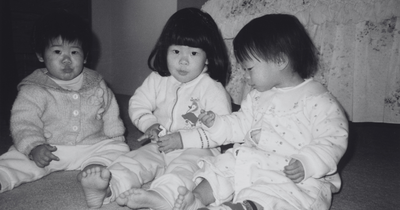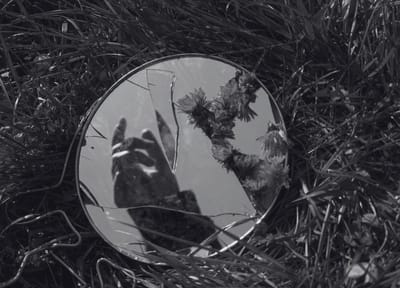I didn’t even want to be friends with her

Once upon a time, I was a young sophomore in high school when, after an assignment comprising of me performing a piano piece for a group of strangers, a torpedo of bubbly, extroverted energy bounded over to me as I was packing up to leave.
“Hi, I’m Endora! You play so, so well. My mom’s a piano teacher. Are you in choir, too? Can we be friends?”
O…kay. Being of the quiet, reserved sort, I thanked her politely and continued on my way, rather alarmed by such enthusiasm.
But 20 some years later, the “bubbly torpedo” has not been gotten rid of, so here we are.
For years, we have said she is the Sam to my Frodo. She has been at the cliff’s edge with me countless times, demanding I not let go. She has this fierce loyalty that she manifests in the ways she defends me against slander, cuts off anyone who hurts me without question, stands by me in my darkest moments, and celebrates with me in every victory.
So we must hold most of the same core values, right?
Actually, no.
We are total opposites in many ways.
Did I mention she was a torpedo of extroverted energy? As in, hearing about the way she packs her social schedule gives me anxiety. She’s the kind of the person who, after going full speed all day selling her baking stuff at a market in blazing summer heat, will still go to a friend’s house to hang out afterwards until 10pm, knowing perfectly well she needs to get up early the following morning for worship practice and a full day of church activities the next day.
Just typing that sentence makes me almost break out in hives.
She also thinks getting punched in the face, lifting giant weights, and running marathons are fun workouts. I, on the other hand, think she’s insane, and prefer gentle walks and Barre3 for my exercise.
If you like analysing the Enneagram, I’m a 5 while she’s a 2. According to the Enneagram Institute, we’re double opposites: “a people person versus a loner, a feeling type with a thinking type.” Where she likes to nurture, I like to withdraw. While she is prone to cry about just about anything (in my opinion), I hardly ever cry. In fact, she claims she didn’t see me cry a single tear until fifteen years of our friendship had passed. I’m inclined to believe it.
Alright, so personality differences aren’t the worst, of course. We’ll set aside her bad habit of inviting groups of friends I didn’t know to my house whenever she came to visit before I told her I couldn’t take it anymore, for now. She no longer flings me into large social unknowns where all I do is gawk and stare like a deer in headlights, die a little inside, then spend a month to recover.
We were talking about core values. Surface differences like personality can often be swept aside in light of shared common principles, so we must have those, right?
Wrong.
Well, we’re both Christians in that we agree on basic tenets of Protestant faith—primary theology, if you will. However, I think we disagree about just about everything else. I sometimes call her (with utmost affection) a Bible-thumping, super-conservative, fundamentalist Southern Baptist. I go to what’s considered a conservative church (Presbyterian), but have a much looser hold on anything that’s not primary theology. She likely prays for my heathen thoughts and ways. We get into some spirited debates at times, to put it lightly.
And yet, here’s the thing. She is my best friend—the one I know I can rely on at all times, the one I can talk to about anything, even if I know she may not agree with my viewpoints. I know she’ll never judge me (or at least she’ll keep her judgments to herself). I have an unwavering certainty in her love for me, her loyalty to me, and I know this because she has proven it multiple times through the decades. At the same time, she’s not afraid to call me out on my bullshit. And because I trust her, I can accept it.
We didn’t start out that way. In fact, if you asked me who I thought I’d still be friends with after high school, I doubt I would have named her. At that time, our youth and accompanying immature threw our differences into stark relief. She also hated my boyfriend (a story for another time). It didn’t help matters. This drove such a wedge between us that by the time I left for university a year before she did, we were barely speaking.
A person reveals themselves through actions—in multiple forms—like an onion peeling away its layers over time.
Endora and I reconnected when my brother invited her to my surprise birthday gathering during a visit home, not knowing we were no longer close. We started talking again after that, with increasing frequency. Pretty soon, we were calling each other for at least an hour every night. I told her all about my life at college, and she shared about her overly ambitious course load. We talked about shallow topics and deep topics, ranging from drama among mutual friends to what we thought the calling for our lives might be.
Friends started drifting apart, as they often do after high school. She and I would discuss our approaches to friendships, and discovered we both tend to be highly committed, ride-or-die types of friends. To us, friends were priorities, not add-ons. We never again lived in the same city after high school, yet our friendship has endured nevertheless.
Halfway through my first year of university, that same boyfriend Endora had hated cheated on me and broke up with me.
I expected Endora to scold me for my poor judgment. But there was no, “I told you so,” no judgment, no retaliation. She gave me only solace and compassion, listening to my brokenhearted venting for hours, weeks, years.
When I had a faith crisis and decided I was no longer a Christian, still she showed me no judgment. She listened to all my doubts, my rage, my grief. She said she was there for me.
And she was.
While another friend scoffed and said it was just a phase, or my former best friend avoided me until I “came back to my senses,” or others tried to push and guilt-trip me into going back to church, Endora alone remained steadfast, though she was arguably the most stereotypically, stubbornly “Christian-y” one of them all. The kind you’d be tempted to shove into a box and dismiss as the one who’d be the first to abandon me as a heretic.
No, she was the one who stayed.
She defended my choices, told others, including my parents, that I needed to figure things out for myself, and she walked alongside me. She even said she admired me for wrestling through my doubts. There was no pressure from her; all she did was listen and love me.
Though I did struggle my way back to Jesus, I’m still far more “liberal” than Endora will ever be.
And I’ve learned that that’s okay.
I have found a friend who is true—who accepts me for who I am. I have a friend who, when she dates someone, tells him I’m part of the package—not just me, but my whole family. My husband also understands that Endora is one of my priorities; when she went through a break-up, he is the one who said we should drive up to keep her company, because he also sees her as part of our family. She’s someone who pursues me, takes the effort and time to stay involved in my life, and to keep me involved in hers.
This relationship opened my eyes to something we often miss in our focus on differences: that genuine friendship can transcend even the most fundamental of them. Though ours have continued well into today (just a few weeks ago, we got into an argument about medicine; she’s quite the holistic health nut these days. I said if she got cancer and refused chemo, I would slap her; she said that’s fine, she’ll slap me right back. Afterwards, we said we loved each other with much affection), we carry on with the knowledge that our love for one another is greater than our differences.
Much of this has to do with genuine respect and a willingness to talk about topics with empathy—a desire to understand the other person’s point of view. Endora once said, “I can’t change anyone’s mind by arguing with them, and it’s not my job to judge them. I can only pray for them.”
When I think of my best friend, I recall her encouraging me to write ever since we were in high school. Today, she is one of my staunchest supporters, often exhorting me to keep sharing my words, telling me I’m the best writer she knows.
I think of her during my many suicidal years, talking on the phone with me while I was locked in psychiatric wards. Any time I made plans further than a week away, she’d cry and tell me how proud she was of me for planning so far into the future (in fact, she still does that).
I think of her loving my family and caring for them, cooking my husband’s favourite dish when she comes over, bringing treats for my children and smothering them with affection. I remember her showering my son, Ren, with so much love and forming a close relationship with him, knowing he was openly gay. Even though the stereotype says she was supposed to be a bigot and hate him.
I think of her after Ren died. The way she drove the two hours to be with me every two weeks for the first year, just to pull me through from week to week. The way she would plan little weekend trips every month that year for the same reason. Just to try to keep me alive.
I think of her hearing me tell her the things I’m ashamed of, loving me all the same, and believing I am not my mistakes. And how she believes in me so much she doesn’t care what other people say. “Because I know you,” she says. Of the time I told her I was lesbian and wanted to make sure she still loved me, she said, “That’s random. I know you’re attracted to women (just don’t cheat on your husband).”
Part of why I love The Lord of the Rings so much is because of Tolkien’s portrayal of friendships. From a young age, I longed for such deep connections, and I found it in Endora. She’s my John Watson, my penguin (mate for life), my Samwise.
Through ashes and pits, she has carried me, accepted every part of me. I would not be here without her.
Because of Endora, I’m not so afraid of people who hold opinions or values contrary to my own. I’m also able to have hope that such friendships can still exist in spite of the world’s fiercest attempts to convince us all that we must pick a side or we have betrayed ourselves.
Division needn’t be the default.
People don’t fit into boxes. They’re too beautifully complex, filled with every colour we can and can’t see. You can’t define them by their careers, which church they go to or don’t go to, which celebrities they follow, their beliefs. Humans, in all their glorious, fluid, messy ways, will always surprise you if you let them.
Endora teaches me to see the human being, the Imago Dei within each person. Beneath every imperfection and misunderstanding, it is always present if we but look for it.

In my upcoming book, I write about friendship love overcoming barriers. Sign up here to be notified when it launches.
About Me: I’m Tiffany, a literary fiction, fantasy, and memoir author. My writing has been published by The Cultivation Project and Renewal Missions. I’ve been writing this publication, The Untangling, since 2023, which is a Substack bestseller. Order my books here or here.
No spam, no sharing to third party. Only you and me.





Member discussion